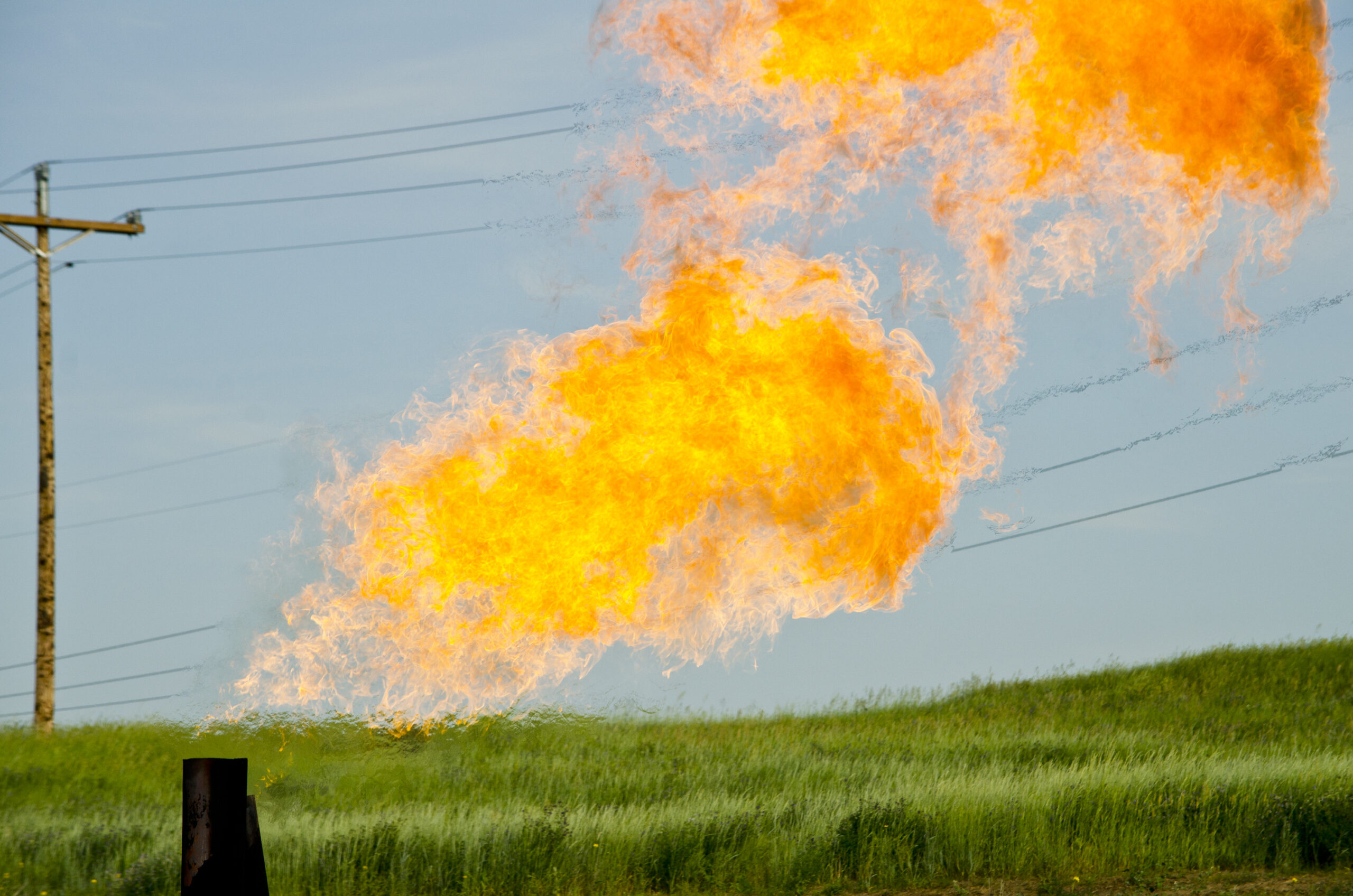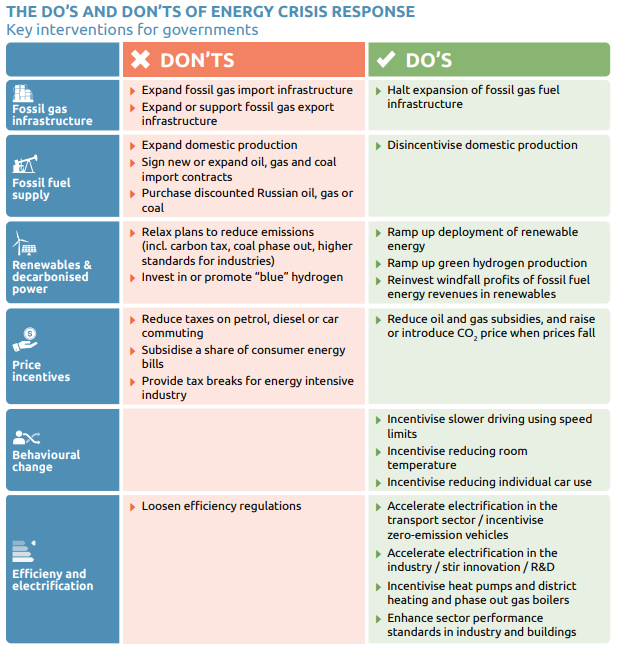Researchers warn that if governments’ current plans materialize, they will either end up as massive stranded assets or will lock the world into irreversible warming.

Natural gas flares from a flare-head in McKenzie County, North Dakota. (Tim Evanson, Flickr, CC BY-SA 2.0)
By Kenny Stancil
Common Dreams
Progressives have been urging governments to embark on an accelerated global clean energy transition since Russia’s late-February invasion of Ukraine and the ensuing Western sanctions unleashed chaos in energy markets around the world, but policymakers have opted instead to expand fossil fuel infrastructure.
That’s according to researchers from Climate Action Tracker, which released a new report last week warning that this reaction threatens to lock in decades of heat-trapping emissions at a time when the window to slash greenhouse gas pollution and avert the most catastrophic effects of the climate crisis is rapidly closing.
[Related: UKRAINE: US Gas & Europe’s Decarbonization Hit]
“So far, governments have largely failed to seize their chance to rearrange their energy supplies away from fossil fuels,” states the report. “Instead, we are witnessing a global ‘gold rush’ for new fossil gas production, pipelines, and liquefied natural gas (LNG) facilities. This risks locking us into another high-carbon decade and keeping the Paris agreement’s 1.5°C limit out of reach.”
Key findings of the analysis include:
- New planned LNG import facilities in the European Union —especially in Germany, Italy, Greece and the Netherlands — could supply a quarter more gas to the E.U. than before;
- Canada plans to fast-track new LNG projects to increase exports;
- The United States has signed a deal to export additional LNG to the E.U., Qatar and Egypt have signed similar deals with Germany and Italy, respectively. Algeria has signed a deal to export additional gas via pipeline to Italy;
- In Africa, old gas pipeline projects are being revived (e.g. Nigeria) and countries with previously no fossil gas exports (e.g. Senegal) are now encouraged to supply gas to Europe; and
- Domestic fossil fuel production has increased in the U.S., Canada, Norway, Italy, and Japan, and new long-term import contracts are closed or extended in the United Kingdom, E.U., Germany, Poland, and Italy.
“If all these plans materialize,” the report warns, “they will either end up as massive stranded assets or they’ll lock the world into irreversible warming.”
Climate Action Tracker supplied a graphic detailing what governments should and shouldn’t do in response to the global energy crisis.
The recommended measures include halting the expansion of fracked gas infrastructure; discouraging domestic fossil fuel production; ramping up renewable energy supplies, including by reinvesting revenue raised through taxes on Big Oil’s windfall profits; eliminating fossil fuel subsidies and raising the price of carbon once oil and gas prices fall; and incentivizing energy efficiency and electrification.
 A handful of governments, including the E.U. and the U.K., have proposed increasing their renewable energy targets, but these plans remain inadequate, the report says.
A handful of governments, including the E.U. and the U.K., have proposed increasing their renewable energy targets, but these plans remain inadequate, the report says.
“Almost no government supports behavioral change,” the report laments. “Immediate and low-cost options to reduce energy demand and therefore the need for Russian fossil fuels would include shifts in behavior, such as encouraging slower driving by introducing/lowering speed limits, home office policies, restricting car access to cities, or turning down the heating in buildings.”
“These options still seem to be very unattractive to governments,” the authors note. “We have only found governments recommending their population to those behavioral shifts and few incentivizing it. So far only New Zealand, [the] U.S. (California), Italy, Germany, and Ireland have introduced new incentives for public transport.”
In addition, “more emphasis on energy efficiency and electrification [is] needed,” says the report. “We find only a few countries putting additional emphasis on energy efficiency and/or electrification as a reaction to the current crisis. A push for heat pumps, electric cars, [and] electrification in industry would be an adequate reaction, but is currently underdeveloped.”
Responding to the war in Ukraine by boosting the extraction and international shipment of fossil fuels rather than replacing Russian oil and gas supplies with green energy would represent a second missed opportunity since 2020 to take decisive climate action while there’s still time to secure a livable future.
“After failing to focus on climate during Covid-19 recovery, many governments look set to make the same mistake in the face of a global energy shock,” says the report. “Governments largely failed to make decarbonization a focus in their post-pandemic economic recovery packages, with only a small fraction of the billions spent dedicated to accelerating the energy transition to bring down emissions.”
“Instead, they missed a massive opportunity, spending the lion’s share of those packages on maintaining the status quo,” the report adds. “According to our analysis, governments are making the same mistake, twice over.”
Kenny Stancil is a staff writer for Common Dreams.
This article is from Common Dreams.
The views expressed are solely those of the author and may or may not reflect those of Consortium News.
Help Us Beat the Censors!
Donate to Consortium News’
2022 Spring Fund Drive
Donate securely by credit card or check by clicking the red button:

The author assumes that ending the war with Russia is impossible. Just end the war and Europe and Africa get all the fuel they need.
Here in the US, we need to remove the trade restrictions that we have on solar. The cheaper solar energy becomes, the faster we solarize. China has a major comparative advantage when it comes to the manufacturing of solar products but we are suppose to hate the Chinese. This allows our political leaders to place high trade restrictions on cheap Chinese solar products.
The author fails to recognize that Europe and the US need the gas currently produced including that produced by Russia. Russian gas is much cheaper and carbon cleaner than liquefied gas. All the new construction mentioned in article is to replace Russian gas. Russia will be forced to direct its gas to China and India. This will benefit them, and will seriously adversely affect Europe and US. No money will be left to convert to solar or wind on the scale needed. In effect, the Biden administration is abandoning working on climate change because of sanctions and its policy of refusing to negotiate a security deal with Russia.
This. It’s appalling that the US is prioritizing fracking (which releases methane and compromises water tables)
in order to ship fracked gas to newly built LNG capable ports in Europe. The last thing we need right now is a
fossil fuel resource war, but that’s what we’ve got.
And why does no one ever mention that militaries run on (lots of) fossil fuels ?